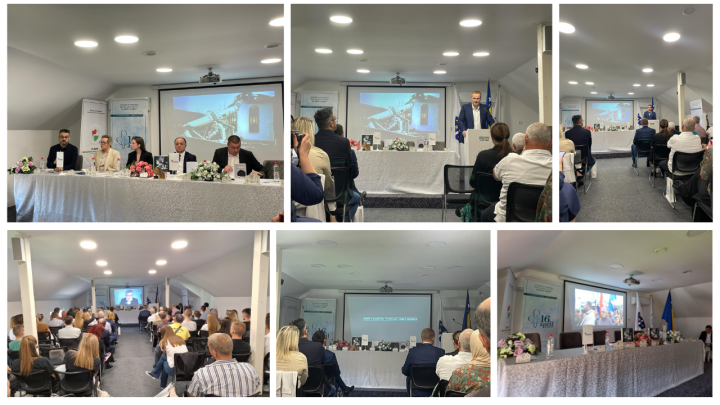MIP organises a panel discussion on crimes in Ahmići

Today, the Mechanism Information Programme for Affected Communities (MIP) organised a panel discussion titled "Established Facts vs. Glorification of Crimes" in Ahmići, Bosnia and Herzegovina (BiH). The event was organised in cooperation with the "Association of War Victims 92-95 16th APRIL Ahmići," and the Sarajevo Memorial Center. The panel discussion was part of a series of events commemorating the 31st anniversary of the Ahmići massacre, the mass murder of over 100 Bosnian Muslim civilians by members of the Croatian Defence Council on 16 April 1993.
The panel commenced with introductory remarks by Mr. Armin Ahmić, president of the "Association of War Victims 92-95 16th APRIL Ahmići," and Mr. Ahmed Kulanić, director of the Sarajevo Memorial Center. A video message from Mr. Kenneth Scott, a former prosecutor from the International Criminal Tribunal for the former Yugoslavia (ICTY) who worked extensively on cases related to crimes in Ahmići, followed their introductions.
The panel, moderated by Mr. Nemanja Stjepanović, an MIP researcher, featured four participants, each offering unique insights.
Mr. Adnan Zec, Ahmići crime survivor and member of the “Association of War Victims 92-95 16th APRIL Ahmići”, spoke about his war experience and the new wave of denial and glorification of war criminals in BiH and the impact it has on the victims.
Ms Branka Vierda, a transitional justice expert from Croatia, shared perspectives on public opinion in Croatia regarding crimes in BiH, including those committed in Ahmići, noting that over 80 per cent of young people in Croatia are not familiar with what happened in Ahmići.
Mr. Murat Tahirović, president of the Victims and Witnesses of Genocide Association from BiH, discussed crime relativisation in BiH and the wider region, offering strategies to counter such tendencies, with specific references to crimes in Ahmići.
Ms Margareta Blažević, a programme officer at the Youth Initiative for Human Rights, Croatia, said that the crimes committed by the Croatian side in BiH are surrounded by silence in Croatia. There is avoidance of this topic and even strong opposition. As an illustration, she mentioned that the two billboards that YIHR put in Zagreb and Ahmići commemorating the victims of the Ahmići massacre were destroyed within a few hours.
Throughout the discussion, the moderator, Mr. Nemanja Stjepanović, emphasised judicially established facts by the ICTY, underlining the importance of factual accuracy in historical narratives. The event concluded with reflections on countering crime relativisation and fostering dialogue to address past traumas effectively.
This event forms part of the MIP’s efforts to support projects and events implemented by victims’ organisations.
The aim of the MIP is to improve the knowledge and understanding of citizens and communities in the countries of the former Yugoslavia about the crimes committed during the conflicts of the 1990s, based on the jurisprudence of the ICTY and the Mechanism. The MIP is funded by the European Union.